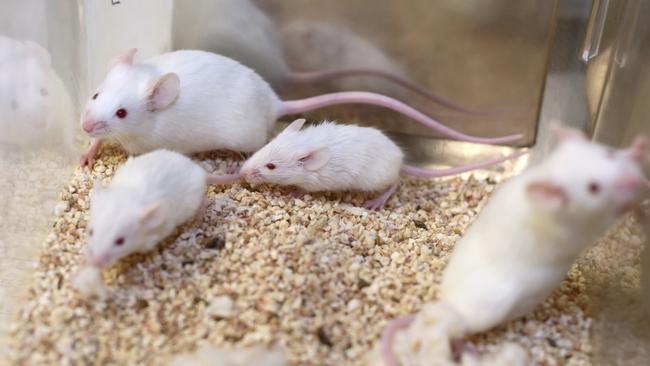Australia’s Deakin University say exercise pill could allow people to think they have exercised
IT SOUNDS like the ultimate cheat. Pop a pill, and reap the benefits of a sweat sesh at the gym, simply by tricking your body into thinking it has exercised.

A TABLET that tricks your body into thinking it’s endured a serious sesh at the gym, but in fact you haven’t even broken out into a sweat may be on the market sooner than we think.
Scientists at Melbourne’s Deakin University have today revealed in the international journal Cell Reports that they have found a drug that has exercise-like effects on muscle and improves metabolic health.

While the drug doesn’t replicate all aspects of exercise, it does target a specific aspect which contributes to burning fat that leads to cardiovascular disease and type 2 diabetes.
“It activates the fat burning path ways during exercise,” associate professor Sean McGee told news.com.au
“The overweight mice the drug was tested on burned the fat that caused cardiovascular disease, meaning we no longer had heart disease in the fat mice anymore.”
Prof McGee said their discovery opens up the possibility of much needed treatments for people who suffer from cardiovascular disease, particularly those with diabetes and obesity.
“Heart disease is still the biggest killer of people with diabetes and obesity, with little in the way of treatment,” he said.

“We have identified a drug that makes the body respond as if it has exercised, with all the fat burning and cardiovascular benefits, which opens up exciting possibilities for future treatments.”
The benefits of exercise is that the body burns more lipid (fat) by turning on genes in the muscle that control fat metabolism. The scientists found that during their research, that one specific protein keeps these genes turned off, however during exercise the genes are turned on.
Through tests on mice, and by genetically manipulating that specific protein, the researchers noticed that the muscles looked like they had been exercising and metabolism was increased in the muscle.

So does this mean the pill, which the university believe will be available in the next 5-10 years, mean we can hang up our running shoes for good? Not quite.
“There are benefits you don’t get from this drug when it comes to exercise,” Prof McGee said.
“Where this might be used is on cardiovascular disease, obesity and type 2 diabetes where there is no real treatment.
“It might be used as a substitute for exercise in the elderly, or as an aid to get people into an exercise program.
“But what we really don’t see is this drug providing an alternative for those people who just can’t be bothered exercising.”

And that’s because there is a downside to the miracle drug. Despite the great cardiovascular benefits, it didn’t cause any weight loss in the mice, because they actually ate more food than when they didn’t take the pill.
“Even though you burn more fat, the total energy expenditure is higher meaning the mice did eat more,” Prof McGee said.
“While they are metabolically healthy, the mice actually tended to eat a little bit more which isn’t really surprising because we know that exercise alone is not that effective at making you lose weight, which is more associated with dietary changes.”
This isn’t the first time researchers have tried to replicate all the proven benefits of physical activity on human health with a single drug.

In a study published in the same journal as the Deakin research, Cell Metabolism, last year, scientists at the University of Sydney shared details of what they described as a “breakthrough” in deconstructing what happens inside a human body during exercise.
The researchers asked four “untrained” but healthy men to engage in high-intensity exercise for 10 minutes, then subjected them to a technique known as mass spectrometry to analyse how that exercise affected protein activity in cells throughout their bodies.
Essentially the molecule works by triggering a chain reaction of events in the cells of the body.
The final product is the body being tricked into activating the cells central energy censor known as AMPK.
When AMPK is ignited, the cells increase their glucose update and metabolism — something that commonly occurs during exercise and can lead to weight loss.




